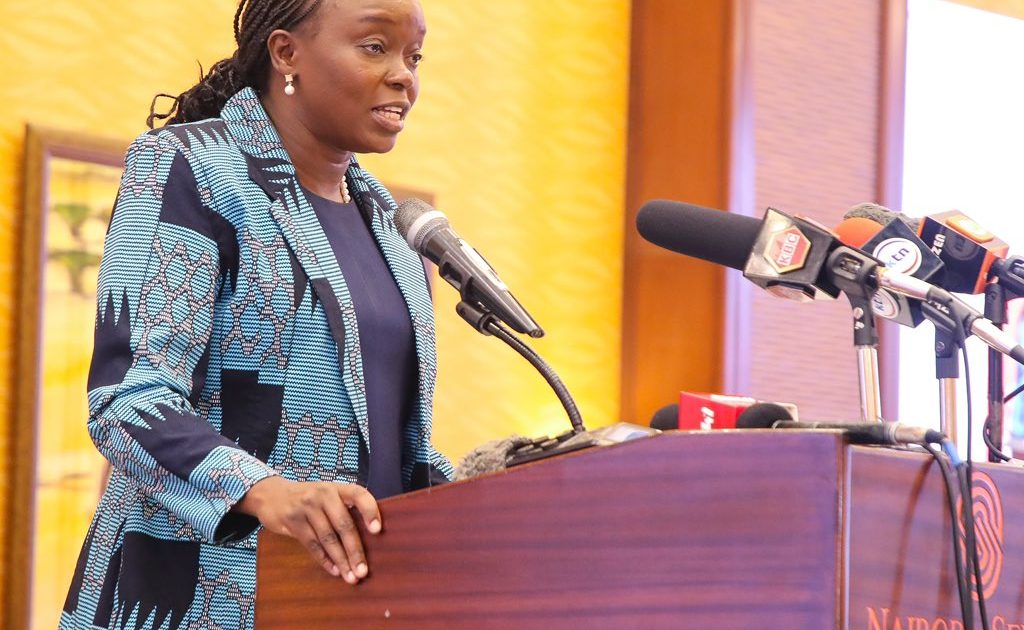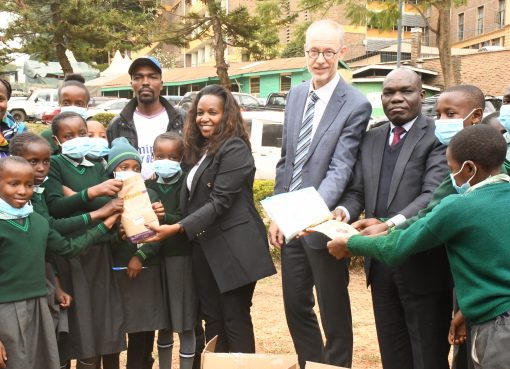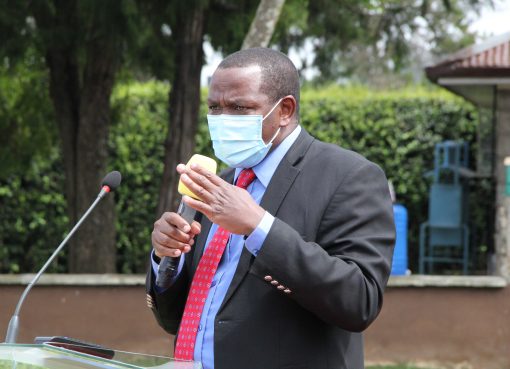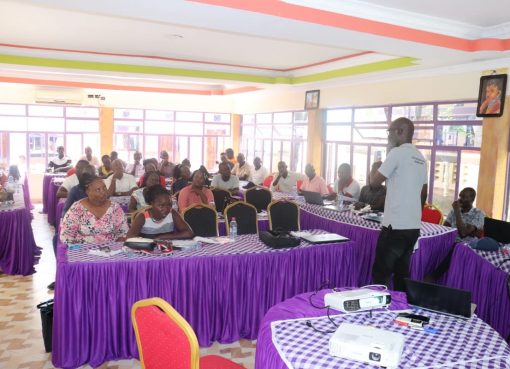The Ministry of Health (MoH) has held a high-level consultative meeting on the impact of the United States of America government stop work order, a funding that has been instrumental in ensuring access to lifesaving antiretroviral treatment (ART), HIV prevention services, and essential diagnostic tools for millions of Kenyans.
The Government through MoH acknowledged the vital role that international partnerships have played in supporting Kenya’s HIV response insisting that it is the country’s collective role to sustain the gains made.
The Cabinet Secretary (CS) for Health, Dr. Deborah Barasa noted that recent issuance of Executive Order Number 14169 by the United States Government, which imposes a 90-day pause on foreign development assistance for programmatic reassessment, has significantly disrupted healthcare service delivery in Kenya.
This decision, according to the CS highlights the urgent need for the country to take decisive action to safeguard the progress it has made in controlling HIV and strengthening healthcare systems.
Over the past decade, Dr. Barasa maintained that Kenya has made remarkable strides in the fight against HIV where, as of 2023, 95 percent of the 1,378,457 people living with HIV know their status.
She highlighted that ART coverage has increased from 41 percent in 2013 to an impressive 97 percent in 2023, while viral suppression among those on treatment has improved from 85 percent in 2019 to 94 percent in 2023.
Speaking in Nairobi, the CS drew the public’s attention to the significant strides Kenya has made in strengthening its healthcare systems since the introduction of donor support in the early 2000s.
“We are not where we were in the 1990s. Today, our health infrastructure, supply chain management, and capacity for disease surveillance and response have greatly improved. We have built local expertise and institutions that can manage public health threats with increased autonomy and efficiency,” she declared, disclosing that these achievements have been made possible through collaboration between the Global Fund, PEPFAR, and the Government of Kenya.
Dr. Barasa observed that the meeting comes at a crucial time as the country works towards a whole-of-government approach to developing localised solutions with MoH leading bilateral discussions with the Charge d’Affaires of the United States Government to understand the Executive Order and advocate for advance notice in future actions.
To ensure sustainability, the CS revealed that MoH developed the Health Sector Transition Roadmap, prioritising essential commodities, service delivery, human resources for health, health information systems, and infrastructure, including improvements to the coordination of vertical disease programmes.
This roadmap, she said, was to be implemented in three key phases: planning (2021-2022), pilot (2022-2025), and transition (2026-2030).
Recently, Dr. Barasa underscored Kenya’s Operational Plan for Enhancing the Country Readiness to Sustain a Resilient HIV Response Beyond 2030. The plan provides key five pathways of governance, service delivery and systems, health financing, health products and technology, and community engagement.
Further, she maintained that Kenya has built strong institutions that can ensure sustainable service provision citing the Kenya Medical Supplies Authority (KEMSA) which remains a functional and well-structured supply chain institution with access to global markets and a deep understanding of procurement processes.
“Our forecasting and quantification models ensure we have sufficient medical supplies, including a buffer stock for at least six months,” asserted the CS.
Additionally, Dr. Barasa affirmed that the government is also committed to expanding local manufacturing capacity to reduce dependency on external sources, insisting that by strengthening the country’s health financing strategies, including the Social Health Insurance Fund (SHIF), Kenya aims to achieve a more sustainable, locally-driven response to HIV and other public health challenges.
Meanwhile, she made a call to action for governors to enhance domestic resource allocation for HIV programs in their respective county governments, which have a unique opportunity to step in and bridge the resource gap by utilising the Facilities Improvement Fund (FIF) to engage additional frontline healthcare workers on a short-term basis for continued service delivery, especially for essential programs currently supported by PEPFAR.
She urged Members of Parliament to act now and advocate for increased budgetary allocations to the health sector, particularly for HIV programs.
“Without sustained domestic investment, the progress we have made in the HIV response is at risk. We must prioritise financing for essential commodities, human resources, and healthcare infrastructure,” urged the CS, adding that strengthening domestic health financing mechanisms will provide long-term sustainability and resilience.
Dr. Barasa urged that it is time for Kenya to reassess the design and sustainability of disease management programs to ensure long-term resilience and self-sufficiency.
She urged calm, unity and collective action as the country navigates these changes assuring that Kenya’s HIV response remains strong, resilient, and people-centred.
By Michael Omondi





